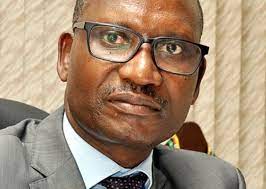TRANSPARENCY: CoST Uganda Commissions 2nd Infrastructure Transparency Index
By PATRICK JARAMOGI
KAMPALA, Uganda [SHIFTMEDIA NEWS] Women Human Rights Defenders in Uganda have echoed their concerns regarding the continued government restrictions and shrinking space.
For over a decade now, Uganda’s civil society has come under attack enforced by various government restrictions, something the women activists say is jeopardizing their operations.
Scores of Women Human Rights Defenders (WHRD) who spoke at the Uganda Women Network
(UWONET) and Women Probono Initiative (WPI) organized Women’s week session of Women Human Rights Defenders in Uganda’s shrinking Civic Space talked of how the government “oppression” is hindering delivery of their services.
Joy Asasira, a lawyer, Reproductive Gender Specialist and Program Manager Research at the Centre for Human Rights and Development (CEHURD) observed that the shutting down of 54 NGOs, and the suspension of the Democratic Governance Facility (DGF) by government in 2021 marked the beginning of civic shrinking space in Uganda.
DGF Kicked Out
The Democracy Governance Facility, a multi-donor Fund established in 2011 to properly coordinate donor assistance and activities in Uganda wound up its activities last year after nearly 12 years in Uganda.
The Fund that had seven members including Austria, Denmark, The Netherlands, Norway, Sweden, Ireland, and the EU, were together raising over 100billion Shillings that has been used to fund different civil society organizations and government institutions engaged in human rights and good governance activities.
In February 2021, President Museveni suspended the activities of DGF accusing its managers of operating such a mega fund without proper government oversight. Efforts to have the Fund reopened hit a dead end forcing the contributing partners to pull out of the arrangement.
Shrinking Civic Space
“What is the intention of people who are against Women Human Rights Defenders? Why are they against our activities? As women Human Rights Defenders we need to unite as one to fight for a common goal of protecting the Ugandan women,” said Joy Asasira. She urged the donor community to stop heaping unnecessary demands from Women Human Rights Defenders, who struggle to operate under very harsh environment in Uganda. “Donors need to appreciate the conditions Women Human Rights in Uganda work under, these defenders need to be supported with legal aid, not just probono lawyers. We need fees to hire commercial lawyers to represent in courts of law when we are arrested,” she said.

Rose Wakikona a lawyer with Center for Human Rights, who gave the opening remarks on behalf of the Womens’ Probono Initiative Executive Director Primah Kwagala noted that WPI was founded in 2018 to end discrimination against women and girls in Uganda. “WPI challenges the status quo and narrative of gender equality and uses the law as a tool that can be used creatively to advance conversation, shift attitudes, and change polices” she said. Wakikona said the vision of WPI is to see a just and equitable society where women and girls are free from all forms of discrimination, and violence.

Dorothy Kiyai, a human rights lawyer said in house safety and security is important for women human rights defenders. “The restrictive legislative environment creates self-censorship and it affects women at layered levels. Some laws are gender blind or reinforce patriarchal notions that put women at more risk,” said Kiyai
Donors Advice Women Defenders
Ms. Judith Adokorach the Policy Officer Sexual and Reproductive Health and Rights at the Dutch Embassy in Uganda urged the Women Human Rights Defender in Uganda to work in unison. “We have seen an increased enrollment of girls in primary schools in Uganda, but a reduction in the number of those who complete primary,” said Adokorach.
 She told the Women Human Rights Defenders at Kabira Country Club in Kampala that now is the time to build bridges, amidst the shrinking civic space, “Not everyone can be close together, but some can decide to work together. For now lets forget working in isolation, unite as women human rights defenders, especially when soliciting for funds and work as a team,” she advised.
She told the Women Human Rights Defenders at Kabira Country Club in Kampala that now is the time to build bridges, amidst the shrinking civic space, “Not everyone can be close together, but some can decide to work together. For now lets forget working in isolation, unite as women human rights defenders, especially when soliciting for funds and work as a team,” she advised.
She noted that repressive policies will always be present, but the power lies in the civil society when addressing such policies. ‘The question is how can we diversify challenges for women funding in Uganda?’ she mused.








